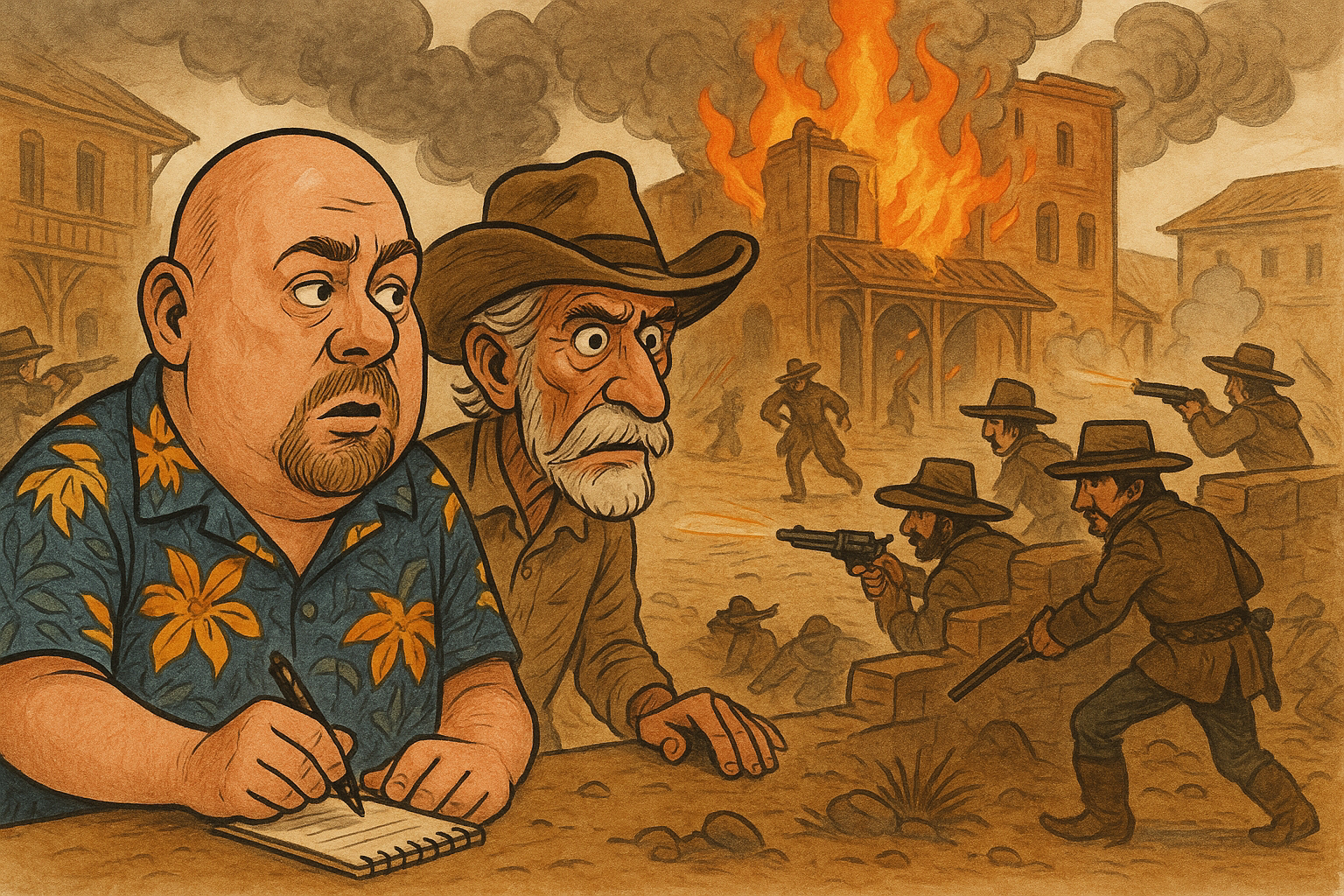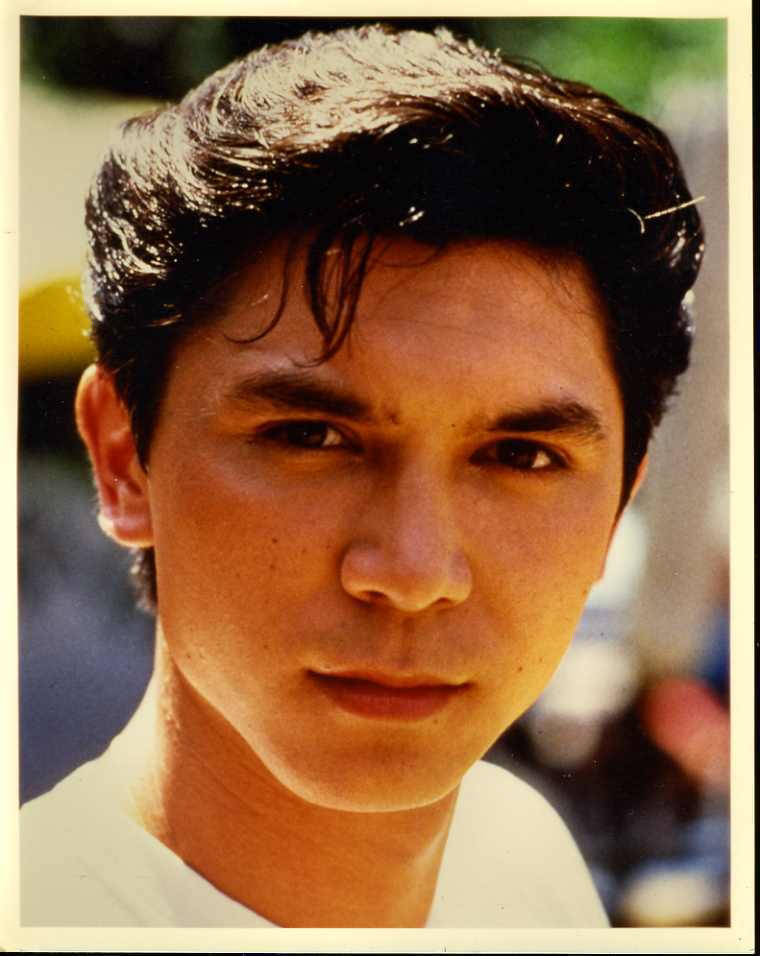If there’s one thing I’ve learned from digging into the Young Guns story, it’s this: real history isn’t clean. It’s messy, raw, and often more brutal than the movies ever show. So when I wanted to get the full story behind the Battle of Lincoln, I knew I needed to talk to someone who wasn’t afraid to tell it how it was.
That someone is Capt. Earl — a guy who’s spent the better part of his life knee-deep in Old West records, cemetery archives, bullet-pocked courthouse walls, and whiskey-soaked legends. We met in a dusty back room at a local museum in Lincoln County — the kind of place where the floorboards creak like old revolvers being cocked — and he didn’t waste time getting into it.
James Davis: Let’s get right to it. People hear “Battle of Lincoln,” and they picture this epic, all-out showdown. But what really kicked it off?
Capt. Earl: Hell, James, you gotta rewind a bit to understand why that house burned and why Billy the Kid came charging out like a devil in the night. This wasn't a spur-of-the-moment shootout. It was a pressure cooker. All of it goes back to the murder of John Tunstall — the young English rancher who dared to challenge the monopoly Dolan and Murphy had over Lincoln County.
James: So it’s about business?
Capt. Earl: And power. Always power. Tunstall and Alexander McSween were trying to introduce fair business practices, credit options, honesty — all that decent stuff that crooks hate. Murphy-Dolan didn’t take kindly to competition. They used the courts, the sheriffs, and even hired thugs. Then they flat-out murdered Tunstall in cold blood.
James: And that’s when the Regulators were born.
Capt. Earl: Exactly. Tunstall’s men — Billy the Kid, Dick Brewer, Charlie Bowdre, Frank McNab, and others — formed a posse under legal authority, at first. They were deputized to arrest Tunstall’s killers. But the law in Lincoln was a bad joke. The courts were run by Murphy’s men. When the law turned on the Regulators, they fought back with bullets.
James: So what made July 1878 the boiling point?
Capt. Earl: Tensions were rising for months. The Regulators had already killed Sheriff Brady, Buckshot Roberts, and others. They were holed up in the McSween house in Lincoln, basically surrounded. The Dolan faction brought in dozens of gunmen, including members of the 9th Cavalry — Buffalo Soldiers under government orders. Officially, they were supposed to keep the peace. Unofficially, they were backing Dolan.
James: That’s wild. U.S. Army helping a corrupt business?
Capt. Earl: It ain’t the first time. Won’t be the last. From July 15 to July 19, it was a full-on siege. The Regulators were stuck in the McSween house, outgunned and outnumbered. Food ran low. Water ran dry. The men were baking inside that wooden house with no escape plan. The smell of gunpowder, sweat, and desperation must’ve been thick.
James: How bad was the fighting?
Capt. Earl: Constant sniping. You couldn’t poke your head out without risking a bullet between the eyes. At one point, McSween’s wife, Susan, was crawling on her belly to deliver messages and bring in what little food she could. A few women and kids were in there too. They weren’t just fighting for pride — they were fighting for their lives.
James: Did the Regulators ever have a chance?
Capt. Earl: Not really. Even Billy the Kid — as sharp and dangerous as he was — couldn’t fight off over a hundred men. They tried negotiating. Tried holding out. But on July 19, Dolan’s men said enough was enough. They torched the place. Flames spread fast, and the men had to make a choice — burn or break.
James: That’s when the escape happened?
Capt. Earl: Yeah. Picture it: walls crumbling, smoke choking your lungs, bullets tearing through windows. Billy led a breakout through the back door. Some were killed instantly. Alexander McSween, unarmed and trying to surrender, was gunned down in the street like a dog. Harvey Morris, McSween’s young law clerk, was murdered trying to crawl away. It was chaos.
James: And Billy gets out?
Capt. Earl: He does. He and a handful of Regulators ran through the alley behind the Tunstall store, firing back as they went. Somehow, by sheer grit and timing, they made it to the hills. But that was the end of the Lincoln County War in any real organized form. McSween was dead. The house was ashes. The Dolan faction took over the town.
James: Did the law ever catch up to the Dolan men?
Capt. Earl: Not in any meaningful way. Dolan stayed in Lincoln. Opened a new store. Got appointed to public office, believe it or not. That’s the twisted part. The bad guys didn’t just survive — they thrived. And Billy? He became the outlaw legend we know today. But back then, he was just another fugitive with a price on his head.
James: That makes it feel more tragic than heroic.
Capt. Earl: That’s exactly what it was. The Regulators weren’t saints, but they were pushed into a corner. They were kids, most of them — teenagers and early 20s — going up against men with money, power, and government backing. The system was never going to let them win.
James: Looking back now, what should we take from the Battle of Lincoln?
Capt. Earl: That justice doesn’t always come from the courtroom. Sometimes the law is just a tool for the people with power. What the Regulators did was desperate, maybe reckless, but in their eyes, it was the only way to fight back. If you want to understand America’s wild history, you’ve got to stop seeing cowboys and start seeing scared, angry young men trying to stand up to corruption.
James: Would you say Billy the Kid was a hero?
Capt. Earl: I’d say he was a survivor. Smart, quick, loyal to his friends — and a killer when he needed to be. But a hero? That depends on who’s writing the story. I don’t think he ever saw himself that way. He just wanted to live.
I walked out of that interview with my head spinning. Not because of the facts — though those were brutal — but because of the raw humanity of it all. We like to think of the Old West as black hats and white hats. But in Lincoln, it was mostly gray. Gray morals. Gray justice. And the smoke that rose over McSween’s house was the color of dreams burning out.
The Battle of Lincoln wasn’t a Hollywood shootout. It was a small war. A last stand. And it proved one thing beyond a shadow of a doubt: sometimes, the most dangerous place to stand is between a man and his money.




